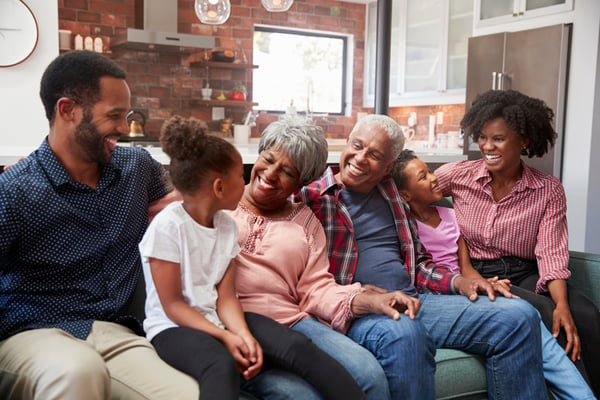The Benefits of Connecting with Other Generations
Walker Methodist | May 31, 2019
 Socializing is a necessary part of being human. Typically we socialize with others in our own demographic or age group. This is likely because those are the people we have most in common with and are in closest proximity to us. If we do spend time with younger generations, it’s likely our own family members or caregivers.
Socializing is a necessary part of being human. Typically we socialize with others in our own demographic or age group. This is likely because those are the people we have most in common with and are in closest proximity to us. If we do spend time with younger generations, it’s likely our own family members or caregivers.
By limiting our personal interactions to relatives and people our own age, we could be missing out on the many lessons other generations have to share with us!
A multigenerational friend group can enrich our life, introducing various perspectives and, as an added bonus, they can help us to feel younger and more energetic. Here are a few benefits you’ll get from interacting across generations.
Enriched Perspective
Renowned developmental psychologist Erik Erikson divided human emotional development into eight stages. The final stage, which begins at the age of sixty-six, involves looking back and reflecting on accomplishments. By interacting with younger generations during this reflective period, we can broaden our perspectives and gain new knowledge. By hearing differing stories from other generations, we get to live vicariously through them even if just for a moment. As we age, we start to imagine different paths we could have taken, with gratitude for the life we have lived.
Transferred Wisdom
Studies have shown that younger people can gain a variety of benefits from spending time with older generations. After all, this life offers more and more knowledge as we continue to live it. But older adults benefit from those interactions, as well. If you meet someone who wants to know what life was like when you grew up, for instance, you’ll have the satisfaction of sharing that bit of history with someone. You’ll also have the benefit of knowing that a young person has learned from your conversations.
Prolonged Activity
Who says only young people can go to fan conventions or amusement parks? Expanding your social circle will open the opportunity to diversify your activities. Younger generations will give you new ideas on how to spend your time and can boost your mood and activity level in the process. As a result, you’ll stay active longer, which everyone agrees is good for you.
Remaining Connected
It can be easy, especially after retirement, to begin to live in a bubble. Eventually, your social life tends to become less important and less frequent. Connections with younger generations give you a new lease on life and a new reason to prioritize socialization. In return, your younger friends will get far deeper conversations than they likely have with their own peer group.
If you have children and grandchildren, you probably already know what younger generations bring to your life. However, expanding your friend group can increase how often you have those enriching interactions. If you find yourself surrounded by people your own age, make an effort to join a group that crosses generations. Chances are, there’s a local gathering of people who share one of your interests and will be more than happy to meet you.
